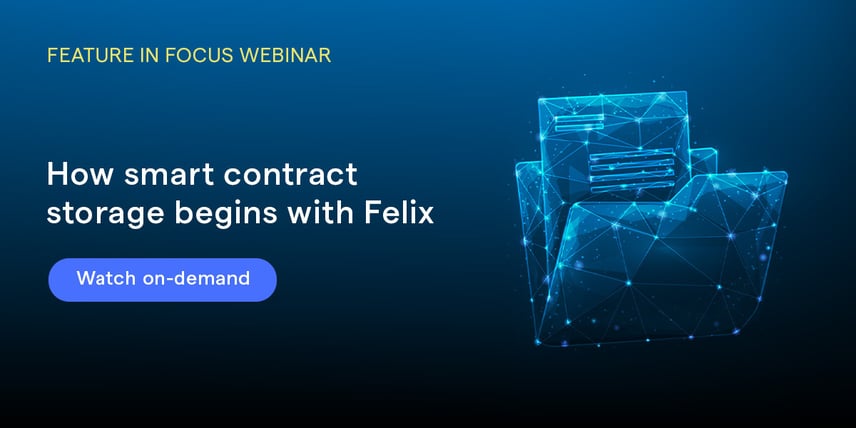In the complex world of the construction industry, effective contract storage allows for smooth business operations through easy access to contracts in a system that automatically flags compliance to mitigate risks associated with missed key dates or contract milestones.
Unfortunately, many organisations rely on ineffective methods of contract storage, leading to negative challenges and consequences.
This article explores how your organisation might be currently storing contracts, identifies six fundamental problems and their impacts with these methods, and highlights the importance of adopting a more efficient and streamlined process.
Contract storage at your organisation
Firstly, let me ask you – how does your organisation currently store contracts?
If any of the below decentralised storage methods sound familiar to you, it might be time to consider how better contract storage can help you be more efficient in your day-to-day work while capitalising on the benefits of a systemised approach.
Method |
The issue |
The consequences |
|
Filing cabinets |
Storing of physical, paper-based contracts |
|
|
Desktop |
Single access |
|
|
Emails |
Single access |
|
|
Shared drives |
Access and permissions |
|
Six key problems (and their impacts) with decentralised contract storage
We have identified six common problems that are consistent across all of the contract storage methods listed above, so let’s dig a little deeper into these and examine the headaches it may be causing you in your everyday work and your organisation.
Problem #1: You can’t search and find contracts easily
The problem: One of the primary drawbacks of ineffective contract storage is the difficulty in searching for and locating specific agreements. With multiple storage locations and disparate systems, finding relevant contracts becomes time-consuming and labour-intensive.
The impact: The inability to search and find contracts creates inefficiencies, leading to delays, increased administrative costs and frustrations among project stakeholders.
Problem #2: There’s no version control
The problem: Ineffective contract storage often results in a lack of version control, making it challenging to keep track of the most up-to-date contract agreements.
The impact: Without a centralised repository or a system in place that allows for systemised version control, organisations risk working with outdated or incorrect contract versions, leading to disputes, misunderstandings, and potential legal complications.
Problem #3: Lack of standard naming conventions
The problem: An additional challenge arising from ineffective contract storage is the lack of standard naming conventions. Without a consistent and organised approach to naming and organising contract files, locating specific documents becomes increasingly difficult, and aggregating contract data becomes a manual, time-intensive task.
The impact: Inconsistent file naming can lead to confusion, misplacement of documents, and communication errors that hinder efficiency.
Problem #4: It’s difficult to find key information and important dates
The problem: Contract storage systems that lack organisation and structure often lead to a lack of visibility regarding critical information and key dates. Construction contracts typically contain important milestones, deadlines, and obligations.
The impact: Without easy access to this information, project teams may miss deadlines, fail to meet obligations, or overlook critical project milestones, which could not only cost the organisation money but jeopardise project success.
Problem #5: Staying on top of compliance is tricky
The problem: Inadequate contract storage practices can contribute to non-compliance issues. Certifications and licenses required for construction projects have expiration dates that must be monitored and renewed in a timely manner.
The impact: If these important dates are not tracked and managed effectively, your organisation may unknowingly operate with expired certifications or licenses, leading to regulatory violations, legal consequences, and potential financial implications.
Problem #6: Ineffective contract storage carries financial risk
The problem: The consequences of ineffective contract storage can have significant financial implications for construction companies. Failure to manage contracts effectively can result in missed opportunities for cost savings, overlooked contractual obligations, or the inability to address contract disputes adequately.
The impact: These factors can contribute to financial losses, decreased profitability, and damaged reputation.
What’s the solution?
To mitigate these issues, construction organisations should consider adopting modern contract repository systems that offer centralised storage, robust search functionalities and enhanced visibility, promoting efficiency and compliance.
Felix’s Contracts module is a contract repository solution, offering the ability to summarise contracts and set key dates and reminders to ensure that costly deadlines aren’t missed. With an option to export reports for further analysis in business intelligence tools, the Contracts module communicates with other Felix modules for an easy, seamless experience to help manage your vendors, tenders and supporting agreements.
- Store contracts, executed agreements and other supporting documentation within Felix, ensuring all required information is in one place.
- Use filters and search functionality to easily find contracts stored within Felix.
- Create Contract Summaries to quickly understand the finer details in lengthy contracts and promptly plan ahead.
- Easily track key dates and reminders so that critical deliverables never get missed.
Learn more about Felix Contracts or contact our team for an obligation-free demo today.
----
Want to see Felix in action? Feel free to request a demo here.
Related Articles

Feature in Focus webinar recap: How smart contract storage begins with Felix
Our Feature in Focus webinar series are designed to give you an in-depth look into Felix, so that you can better use its features and functionality to derive the most value from the platform.
On Tuesday, 26 September, we launched our first webinar of the series, which took a closer look at the Felix Contracts module so that attendees could learn more about How smart contract storage begins with Felix.

No more excuses for missing that contractual deadline
Contracts are lengthy documents containing business terms that you’ve agreed on, including milestones and key dates.

Feature in Focus webinar Q&A recap: How smart contract storage begins with Felix
Our Feature in Focus webinar series are designed to give you an in-depth look into Felix so that you can better use its features and functionality to derive the most value from the platform.
In case you missed it, our recent Feature in Focus webinar, How smart contract begins with Felix took a closer look at our Felix Contracts module, explaining how you can use our contract repository to:
Let's stay in touch
Get the monthly dose of supply chain, procurement and technology insights with the Felix newsletter.





